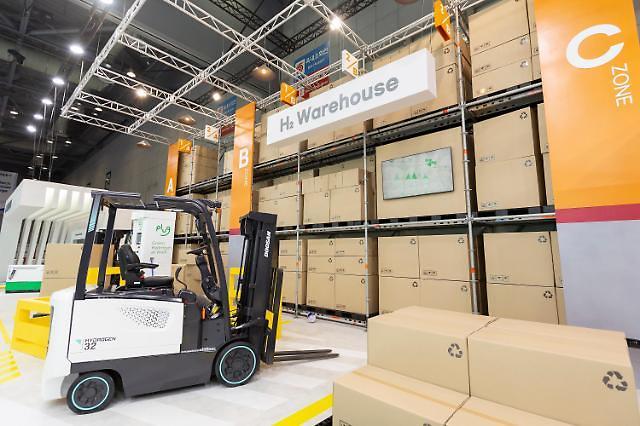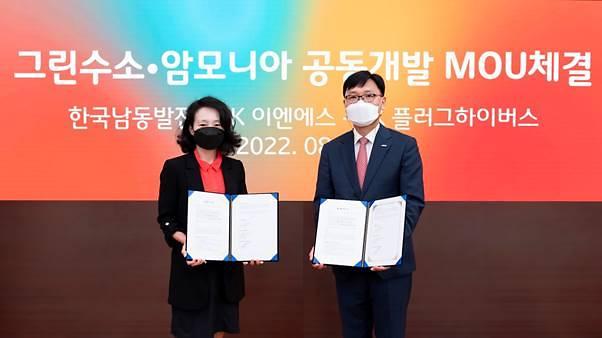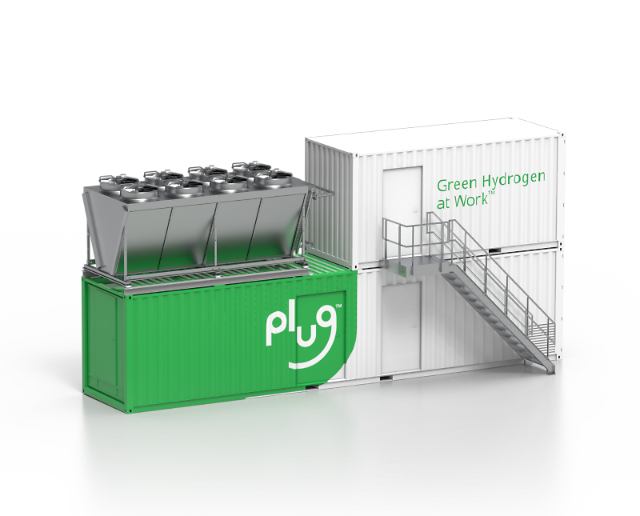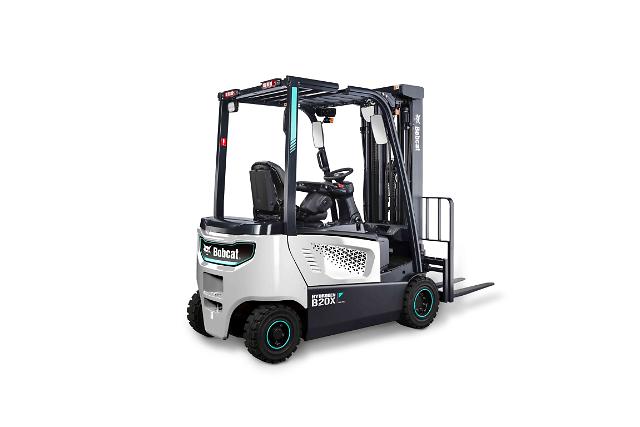
[Courtesy of SK E&S]
SEOUL -- Hydrogen fuel cell forklifts will be introduced for the establishment of South Korea's first eco-friendly hydrogen logistics center in a pilot project involving an asset management company, a logistics company, and a joint venture between SK E&S and Plug Power, an American provider of hydrogen fuel cell turnkey solutions.
SK E&S, an energy company affiliated with South Korea's SK Group, said that SK Plug Hyverse, a joint venture with Plug Power, has signed a memorandum of understanding with Coupang Fulfillment Services (CFS) and Kendall Square Asset Management. CFS, the logistics wing of Coupang, a major ecommerce platform based in Seoul, has more than 100 logistics warehouses, while Kendall runs 42.
Starting in the second half of 2023, some electric forklifts operated by CFS' logistics center in Mokcheon, 75 kilometers (47 miles) south of Seoul, will be changed and based on hydrogen fuel cells. "This business agreement is meaningful in that it has laid the foundation for the establishment of South Korea;'s first eco-friendly hydrogen logistics center," SK Plug Hyverse CEO Lee Ji-young said in a statement on September 1.
CFS records and analyzes the operation data of hydrogen forklifts. Hyverse will supply hydrogen forklifts, build charging stations, and supply hydrogen fuels. Kendall is in charge of providing sites for charging stations and securing licenses. They would try to expand a hydrogen logistics model to logistics centers run by Coupang and Kendall Square.
The logistics industry is trying to reduce carbon emissions by adopting battery-based electric forklifts. Hydrogen forklifts can improve work efficiency and productivity because of their short charging time and longer operation.
SK E&S highlighted the differentiated competitiveness of Plug Power's hydrogen fuel cell system that could be simply mounted in the battery room of electric forklifts. Hyverse will build a major plant in the western port city of Incheon to produce fuel cells and water electrolysis facilities targeting Asian markets. Production is to begin in 2024. The joint venture "Giga" factory is aimed at supporting Incheon's plan to revitalize hydrogen public transportation and use hydrogen for city buses.
South Korea is investing heavily to utilize hydrogen fuel cells as a new power source. In December 2021, a government-sponsored program was launched to test cargo trucks powered by hydrogen fuel cells in logistics services. The test operation involving 11-ton demo trucks built by South Korea's Hyundai auto group was to expedite the conversion of large trucks into eco-friendly vehicles.
Copyright ⓒ Aju Press All rights reserved.




View more comments